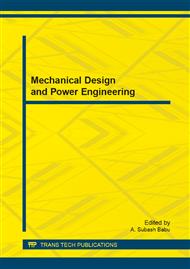p.803
p.809
p.814
p.824
p.828
p.832
p.836
p.841
p.845
An Optimal Consensus Control for Multiple Agents System with Time-Delay and Disturbances
Abstract:
The optimal disturbance rejection control problem is considered for a kind of consensus with control time-delay affected by external persistent disturbances and noise. An transformation method is used to convert the consensus with control time-delay to the consensus system without time-delay. The optimal estimated values of the converted consensus system states are obtained by recursive filtering with Kalman filter. Then the feedforward-feedback optimal control law is deduced by solving the Riccati equations and matrix equations. Lastly, simulations show the result is effectiveness to the consensus system with time-delay with respect to external persistent disturbances and noise.
Info:
Periodical:
Pages:
828-831
Citation:
Online since:
January 2014
Authors:
Price:
Сopyright:
© 2014 Trans Tech Publications Ltd. All Rights Reserved
Share:
Citation:


